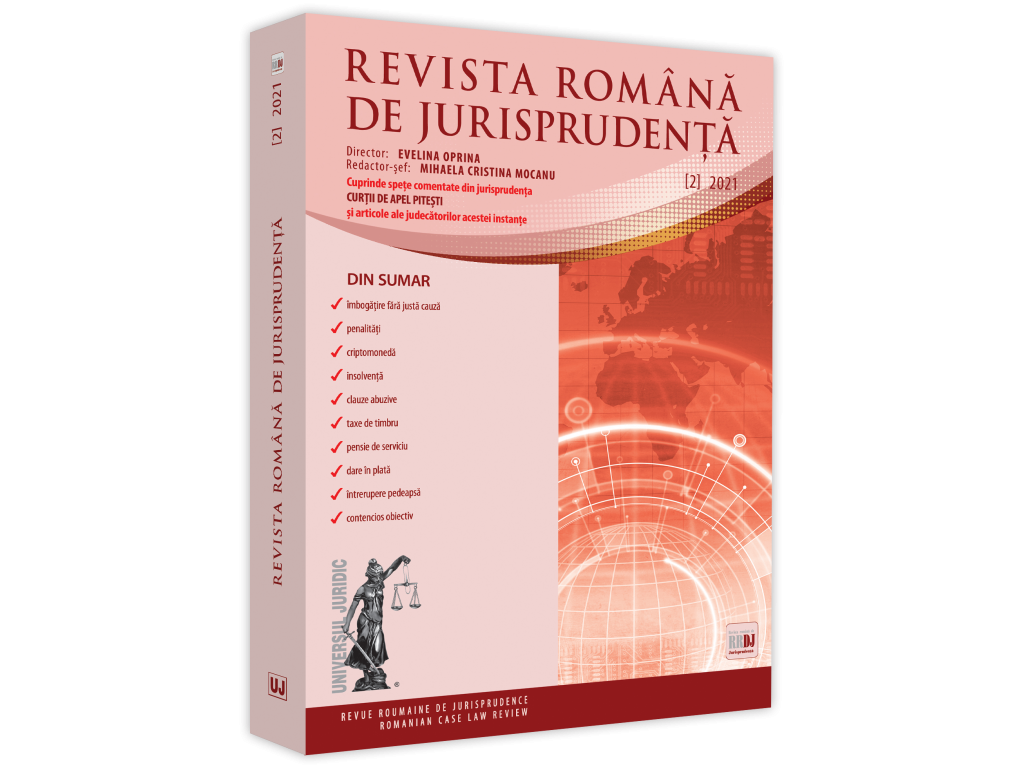Action for annulment of legal acts brought by the National Integrity Agency. The legal regime. Standing to be sued
CONTENCIOS ADMINISTRATIV ŞI FISCAL
Abstract
The Court finds that, by regulating the conflict of interest in Law No 161/2003, the legislator has established a special incapacity in the person of a public official in one of the situations expressly provided for by the law, with the latter being unable to participate in the resolution of a request, the taking of a decision or participation in the taking of a decision. Such a regulation is a condition for the validity of a legal act issued or concluded by the public authority/institution through the public official in question, failure to comply with which is likely to entail the sanction of virtual nullity, depending on the specific wording of the texts.
Under these circumstances, the legal texts on conflict of interest protect a general, public interest, the principles underlying the conflict of interest being, moreover, those of impartiality, integrity, transparency of the decision and supremacy of the public interest, so that, accordingly, the sanction affecting the legal act concluded in breach of the provisions in question will also be that of absolute nullity.
Article 70 of Law 161/2003 defines conflict of interest as follows: "conflict of interest means a situation in which a person exercising a public dignity or a public office has a personal interest of a pecuniary nature, which could influence the objective performance of his/her duties under the Constitution and other normative acts".
From the analysis of Article 23 paragraph (1) of Law no.176/2010, it follows that the object of the action for a declaration of absolute nullity is represented either by the legal acts or by the administrative acts, hypotheses in which the passive legal standing belongs, according to Article 36 of the Civil Procedure Code, either to the parties of the contested legal act or to the issuer of the contested administrative act.








